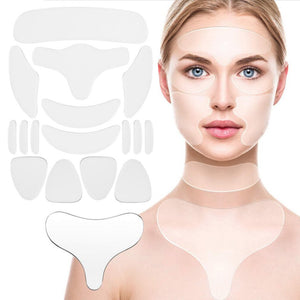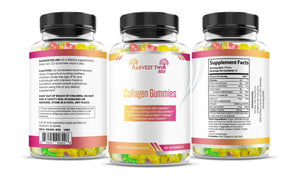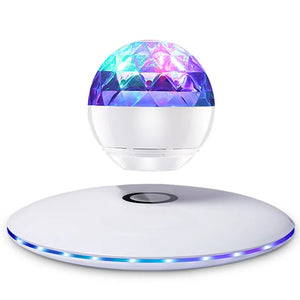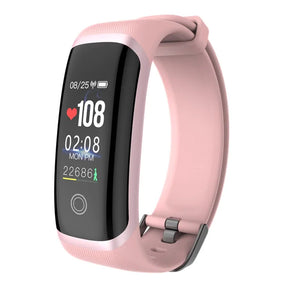
For decades, coffee was viewed with skepticism by many health experts. It was often thought of as a harmful beverage that contributed to high blood pressure, anxiety, and sleep issues.
But in recent years, coffee has experienced a remarkable turnaround in the scientific community. Research after research has revealed that drinking coffee – whether caffeinated or decaffeinated – can offer numerous health benefits, including a longer life span and a reduced risk of chronic diseases, particularly Type 2 diabetes.
This is a development that Nifty Cool Stuff, our online lifestyle store, needs to share.
Coffee and Type 2 Diabetes: A Protective Effect
Large-scale studies have shown that people who drink three to four cups of coffee daily have about a 25% lower risk of developing the disease compared to those who drink little or no coffee. What's more, each additional cup of coffee consumed daily is associated with a 6% reduction in the likelihood of developing diabetes – though this benefit plateaus around six cups a day.
This association between coffee and a reduced risk of diabetes is not only supported by studies in Europe and North America but also in Asia. The benefits appear consistent across gender, age, and even lifestyle factors like smoking and obesity, suggesting that coffee’s protective effects are broad and potentially universal.

Observational Studies: Correlation, Not Causation
While these findings are encouraging, it's important to note that many of the studies conducted on coffee’s health benefits are observational. This means that they identify correlations rather than direct cause-and-effect relationships.
Coffee drinkers may also engage in other health-promoting habits, such as exercising more, eating a healthier diet, or drinking less alcohol, which could contribute to their lower risk of diabetes.

However, researchers have taken these factors into account, and the correlation between coffee consumption and reduced diabetes risk still holds.
Studies have shown that when coffee drinkers increase their intake, their risk of diabetes decreases. Conversely, when they reduce their coffee consumption, their diabetes risk rises. This consistent trend strengthens the argument that coffee itself may be playing a direct role in reducing diabetes risk, rather than just being a marker of other healthy behaviors.
Coffee’s Metabolic Effects
Experts suggest that coffee is more than just a caffeine delivery system. In fact, coffee contains hundreds of bioactive compounds that can positively affect metabolism.

When consumed, the caffeine in coffee triggers a short-term "fight-or-flight" response in the body, increasing adrenaline levels, raising blood pressure, and elevating blood sugar levels while temporarily reducing insulin sensitivity. This may explain why coffee was once considered harmful, as these short-term effects could seem detrimental to health.
However, coffee drinkers who regularly consume the beverage often build a tolerance to these stimulating effects. Over time, the initial jitteriness and stress response that occur after drinking coffee diminish, and the body becomes more accustomed to the caffeine's effects. This shift allows coffee’s other beneficial compounds to take center stage.

Polyphenols: Coffee’s Secret Weapon
One of coffee’s key health-promoting ingredients is its rich content of polyphenols, which are antioxidant compounds found in many fruits, vegetables, and grains. Coffee contains a higher concentration of polyphenols than even green or black tea. These compounds have been shown to reduce inflammation, protect cells, and improve insulin sensitivity.
Chlorogenic acid, a potent polyphenol found in coffee, plays a particularly important role in improving blood sugar control and insulin sensitivity. Studies have shown that chlorogenic acid can reduce inflammation, promote the production of proteins that repair and protect cells, and help preserve the function of the liver and beta cells in the pancreas – key organs involved in regulating blood sugar levels.

These effects are thought to contribute to the long-term reduction in diabetes risk associated with coffee consumption.
The Downsides of Coffee Consumption
Despite its many health benefits, coffee is not without its drawbacks. Excessive coffee consumption can lead to side effects such as sleep disturbances, anxiety, headaches, and digestive issues. For certain groups of people, like pregnant women, drinking too much coffee can increase the risk of complications, including preterm birth or low birth weight.
Health authorities generally recommend that adults consume no more than about 400 milligrams of caffeine daily, which is equivalent to roughly four or five cups of brewed coffee.

Studies have shown that this moderate amount of coffee is associated with the most health benefits, including a reduced risk of Type 2 diabetes, heart disease, and certain cancers. However, for some people – especially those who are sensitive to caffeine – drinking less may be necessary to avoid negative side effects.
Coffee and Individual Health
It’s important to remember that coffee may not be suitable for everyone. People with certain conditions, such as sleep disorders, heart issues, or glaucoma, may be advised to limit or avoid coffee.

If you don't drink coffee and don't enjoy it, there’s no need to feel compelled to start. But for those who already enjoy a daily cup, it’s reassuring to know that in addition to providing a delicious pick-me-up, your coffee may also help protect your health in meaningful ways.
Conclusion: Coffee’s Health Benefits Are Clear
The relationship between coffee and health has undergone a dramatic shift in recent years. Once vilified as a potentially harmful beverage, coffee is now recognized as a powerful source of health benefits, particularly in reducing the risk of Type 2 diabetes.

The polyphenols and other compounds found in coffee can improve insulin sensitivity, reduce inflammation, and help protect against chronic diseases. However, like any food or beverage, moderation is key.
While coffee can be part of a healthy lifestyle, it’s important to consume it responsibly and pay attention to how it affects your body. Ultimately, for those who enjoy it, coffee can be a flavorful and beneficial addition to daily life.

If coffee is something you truly enjoy, the items featured here from Nifty Cool Stuff may assist in your pleasure, especially now that scientists have confirmed you’re benefiting your health. Feel free to give us a click and see which items will work for you!


















































